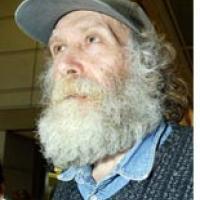
Chess is Bad for Your Mind
In a related essay I argued that Chess is Good for Your Mind. However, for every coin there is a flip, and heads sometimes become tails. Water is a healthy drink, but imbibe too much of it too fast and you can die of water intoxication. Partake of chess in the right amount, and you will enjoy a more enriched life, but is it possible to pursue it too much? Can your mind die from ‘chess intoxication’?
There are many examples of chess masters who engaged in bizarre behavior to say the least. In 2004 Grandmaster Azmaiparashvili, vice president of FIDE, was arrested for (allegedly, as they say) headbutting a policeman.
Now I would not claim that study of chess actually led to this incident, but I do tend to believe that the intense obsession with chess is what led to the well-publicized bizarre paranoia of Bobby Fischer, pictured here later in life. I would like to point the reader to Fischer’s website for evidence, but following his recent death the site seems to have been taken down. It was previously at http://home.att.ne.jp/moon/fischer/
As I just suggested, perhaps it is intense obsession with chess that is detrimental to one’s mental health, although Bill Hartston, former British chess champion, said that ‘Chess doesn’t drive people mad, it keeps mad people sane’.
That other über-famous American Paul Morphy, referred to as “the pride and sorrow of chess”, was certainly obsessed with the game that he abandoned shortly after dominating the world’s best players in the mid-19th century. Morphy’s niece wrote that he used to keep at least a dozen pairs of shoes arranged in a semi-circle in the center of his room. This is certainly odd, though not as odd as if the shoes had been women’s shoes, as the story is often told, though this is apparently false. In keeping with Hartston’s thinking, perhaps the shoes would have been women’s shoes had it not been for the influence of chess.
Another strange vignette regarding Morphy, also attributed to his niece, is that he used to pace the porch saying (in French), “He will plant the banner of the Castille on the walls of Madrid, screaming, ‘The city is conquered and the little King will have to go.’”
Carlos Torre-Repetto, the Mexican Grandmaster, apparently had a fondness for pineapple sundaes, consuming a dozen or so on a given day. Torre was stricken down by mental illness early in life, although I would argue that it could have been the pineapple sundaes rather than the chess that did him in.
GM Akiba Rubenstein was another chess player who had mental problems. He suffered general schizophrenia, as well as an abnormal fear of people and society. These problems resulted in his departure from competitive chess in 1932, and his mental condition is reported to have actually saved his life. When the Nazis arrived at his asylum to lead him to the death camps his condition was such that they decided to leave him to his fate.
In 1905, Pillsbury apparently attempted suicide from a 4th floor hospital window in Philadelphia, as was widely reported in newspapers of the day. Some of the stories elaborated on this event, suggesting that he too had been driven mad by chess. The Washington Times’ story of this incident goes so far as to say, “The tremendous mental strain which [chess masters] undergo in the great tournaments, aided and abetted by excessive use of stimulants to keep them keyed to the proper pitch, is too much for the human brain, no matter how abnormally brilliant.’
Poor Pillsbury was actually suffering from the ill effects of syphilis, rather than chess. The disease went on to kill him.

